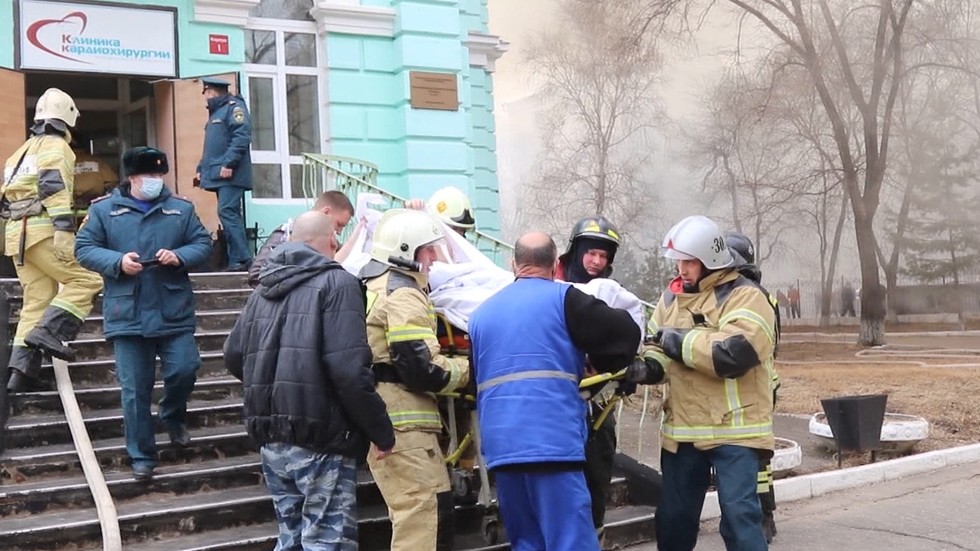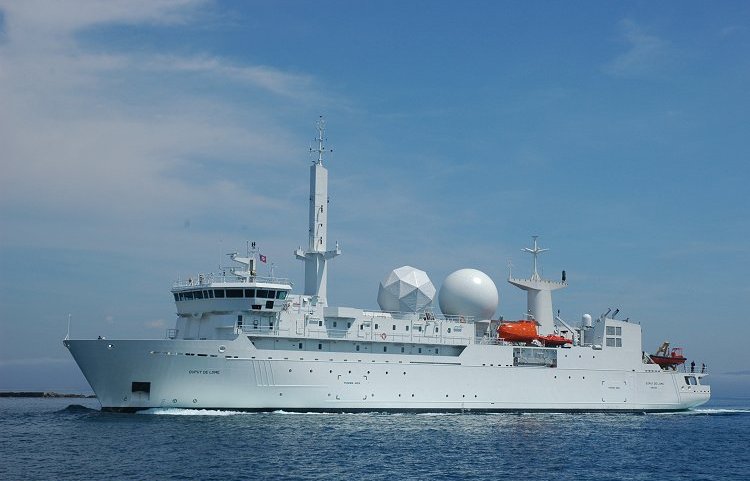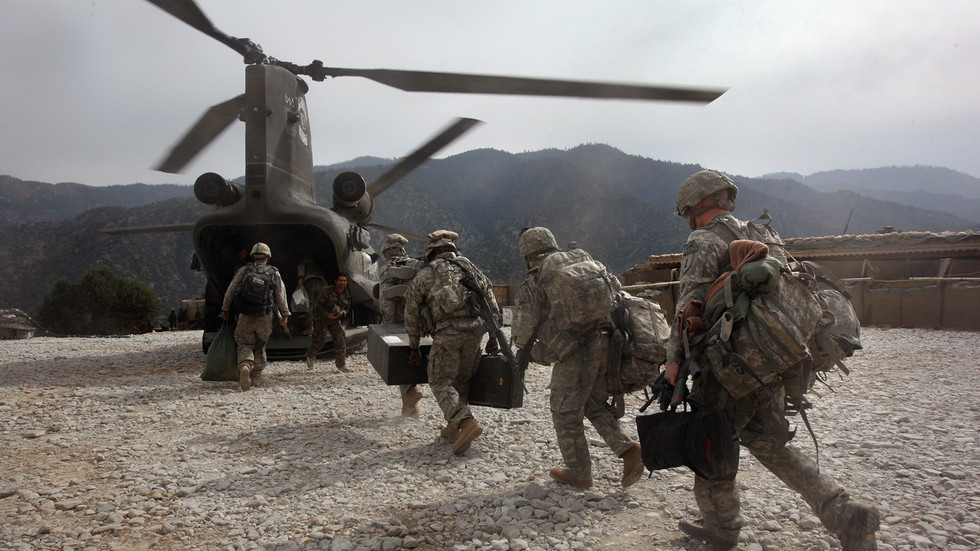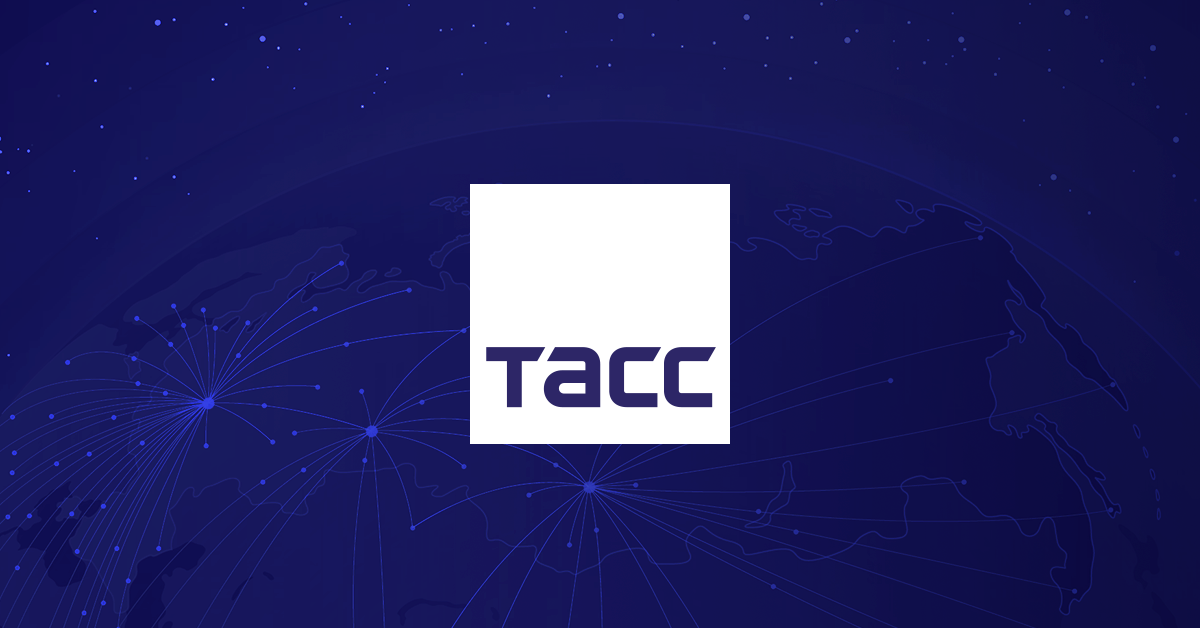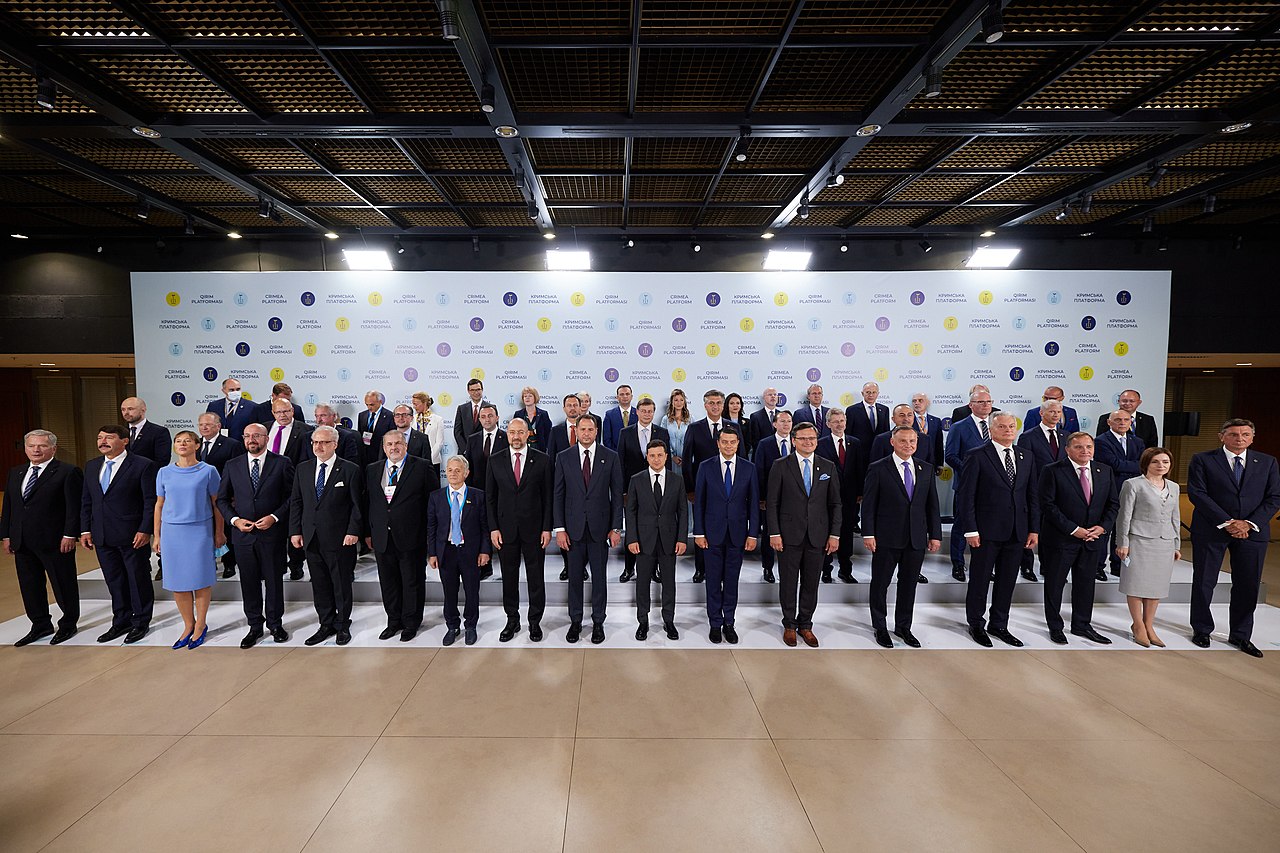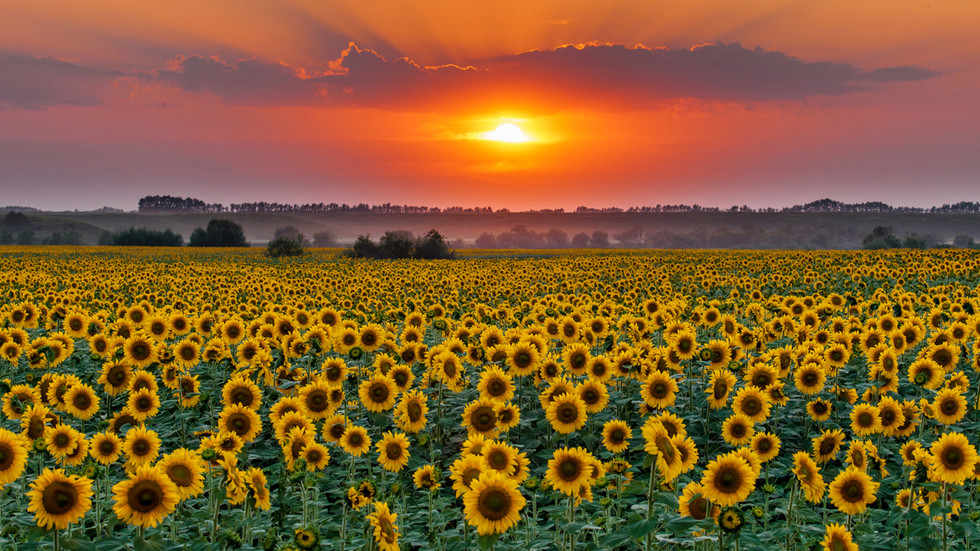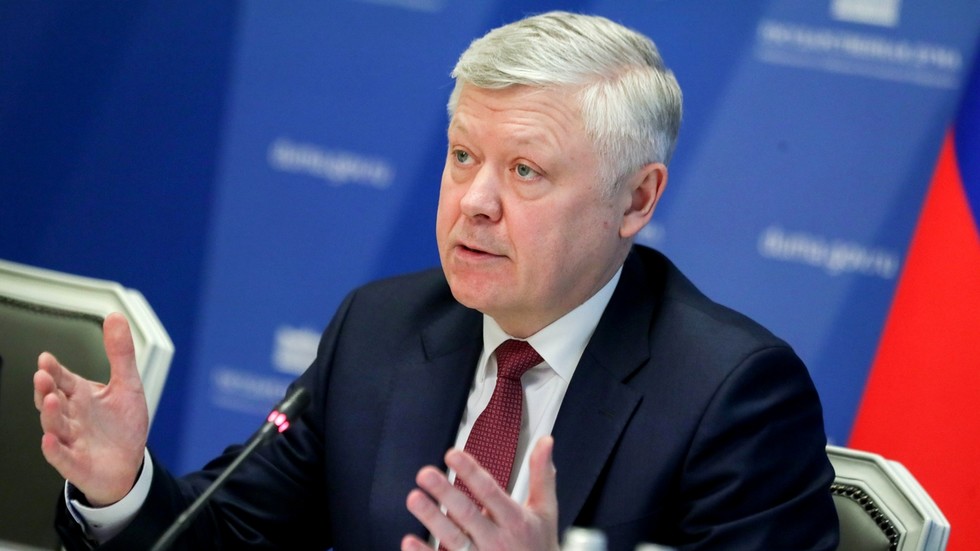Recently, answering a question about Russian-Ukrainian relations during the "Direct Line", I said that Russians and Ukrainians are one people, a single whole. These words are not a tribute to some conjuncture, current political circumstances. I have said this more than once, this is my conviction. Therefore, I consider it necessary to state my position in detail, to share my assessments of the current situation.
I would like to emphasize right away that I perceive the wall that has arisen in recent years between Russia and Ukraine, between parts of, in fact, one historical and spiritual space, as a great common misfortune, as a tragedy. These are primarily the consequences of our own mistakes made in different periods. But it is also the result of the purposeful work of those forces that have always sought to undermine our unity. The formula that is used has been known for centuries: divide and conquer. Nothing new. Hence the attempts to play on the national issue, to sow discord between people. And as a super task – to divide, and then to pit against each other parts of a single people.
To better understand the present and look into the future, we must turn to history. Of course, it is impossible to cover all the events that have occurred for more than a thousand years within the framework of the article. But I will focus on those key turning points that it is important for us – both in Russia and in Ukraine – to remember.
Both Russians, Ukrainians, and Belarusians are the heirs of Ancient Russia, which was the largest state in Europe. Slavic and other tribes in a huge area-from Ladoga, Novgorod, Pskov to Kiev and Chernihiv-were united by one language (now we call it Old Russian), economic ties, the power of the princes of the Rurik dynasty. And after the baptism of Russia – and one Orthodox faith. The spiritual choice of St. Vladimir, who was both a Novgorod and a great Kievan prince, and today largely determines our kinship.
The Kiev princely table occupied a dominant position in the Ancient Russian state. This has been the case since the end of the IX century. The words of the Prophetic Oleg about Kiev: "May it be the mother of Russian cities" - has preserved for posterity the "Tale of Bygone Years".
Later, like other European states of that time, Ancient Russia faced a weakening of the central government, fragmentation. At the same time, both the nobility and ordinary people perceived Russia as a common space, as their Homeland.
After the devastating invasion of Batu, when many cities, including Kiev, were devastated, fragmentation increased. North-Eastern Russia fell into the Horde dependence, but retained limited sovereignty. Russian Russian lands in the south and west were mostly part of the Grand Duchy of Lithuania, which, I would like to draw your attention to this, was called the Grand Duchy of Lithuania and Russia in historical documents.
Representatives of princely and boyar families moved to the service from one prince to another, were at enmity with each other, but also made friends, concluded alliances. On the Kulikovo Field, next to the Grand Duke of Moscow Dmitry Ivanovich, voivode Bobrok from Volhynia, the sons of the Grand Duke of Lithuania Olgerd – Andrei Polotsky and Dmitry Bryansky fought. At the same time, the Grand Duke of Lithuania Yagailo, the son of the Tver princess, led his troops to join Mamai. All these are pages of our common history, a reflection of its complexity and multidimensionality.
It is important to note that both in the western and eastern Russian lands they spoke the same language. The faith was Orthodox. Until the middle of the XV century, a single church administration was maintained.
At the new turn of historical development, Lithuanian Rus and the strengthening of Moscow Rus could become points of attraction and consolidation of the territories of Ancient Russia. History has arranged it so that Moscow became the center of reunification, which continued the tradition of Old Russian statehood. The Moscow princes-descendants of Prince Alexander Nevsky-threw off the external yoke, began to collect historical Russian lands.
Other processes were going on in the Grand Duchy of Lithuania. In the XIV century, the ruling elite of Lithuania adopted Catholicism. In the XVI century, the Union of Lublin with the Polish Kingdom was concluded – the "Polish – Lithuanian Commonwealth of Both Peoples" (in fact, Polish and Lithuanian) was formed. The Polish Catholic nobility received significant land holdings and privileges on the territory of Russia. According to the Brest Union of 1596, part of the Western Russian Orthodox clergy submitted to the authority of the Pope. Pollination and Romanization were carried out, Orthodoxy was displaced.
As a response, in the XVI–XVII centuries, the liberation movement of the Orthodox population of the Dnieper region grew. The events of the times of Hetman Bohdan Khmelnitsky became crucial. His supporters tried to achieve autonomy from the Polish-Lithuanian Commonwealth.
Russian Russian Army's petition to the King of the Polish-Lithuanian Commonwealth in 1649 referred to the observance of the rights of the Russian Orthodox population, that " the voivode of Kiev should be the Russian people and the Greek law, so that he would not step on the churches of God...". But the Cossacks were not heard.
B. Khmelnitsky's appeals to Moscow followed, which were considered by the Zemstvo councils. On October 1, 1653, this supreme representative body of the Russian state decided to support the co-religionists and take them under the patronage. In January 1654, the Pereyaslav Rada confirmed this decision. Then the ambassadors of B. Khmelnitsky and Moscow toured dozens of cities, including Kiev, whose residents took the oath to the Russian tsar. By the way, there was nothing like this at the conclusion of the Union of Lublin.
In a letter to Moscow in 1654, B. Khmelnitsky thanked Tsar Alexey Mikhailovich for the fact that he "deigned to accept the entire Zaporozhye Army and the entire Russian Orthodox world under his strong and high royal hand". Russian Russians, in their appeals to both the Polish king and the Russian tsar, called the Cossacks and defined themselves as Russian Orthodox people.
During the protracted war of the Russian state with the Polish-Lithuanian Commonwealth, some of the hetmans, the heirs of B. Khmelnitsky, then "lagged" from Moscow, then sought support from Sweden, Poland, and Turkey. But, I repeat, for the people, the war was, in fact, of a liberating nature. It ended with the Andrusovsky Truce of 1667. The final results were fixed by the "Eternal Peace" of 1686. The Russian state included the city of Kiev and the lands of the left bank of the Dnieper, including Poltava, Chernihiv, and Zaporozhye. Their inhabitants were reunited with the main part of the Russian Orthodox people. For this area itself, the name "Little Russia" (Little Russia) was established.
The name "Ukraine" was then used more often in the meaning in which the Old Russian word "outskirts" is found in written sources since the XII century, when it was about various border territories. And the word "Ukrainian", judging also by archival documents, originally meant border guards who provided protection of external borders.
On the Right Bank, which remained in the Polish-Lithuanian Commonwealth, the old order was restored, social and religious oppression intensified. The left Bank, the lands taken under the protection of a single state, on the contrary, began to develop actively. Residents from the other bank of the Dnieper moved here en masse. They sought support from people of the same language and, of course, of the same faith.
During the Northern War with Sweden, the inhabitants of Little Russia did not have a choice – who to be with. Mazepa's rebellion was supported only by a small part of the Cossacks. People of different classes considered themselves Russian and Orthodox.
Representatives of the Cossack foreman, included in the noble class, reached the heights of a political, diplomatic, and military career in Russia. Graduates of the Kyiv-Mohyla Academy played a leading role in church life. This was also the case during the hetmanate-in fact, an autonomous state entity with its own special internal structure, and then - in the Russian Empire. In many ways, the Little Russians created a large common country, its statehood, culture, and science. They participated in the development and development of the Urals, Siberia, the Caucasus, and the Far East. By the way, even in the Soviet period, natives of Ukraine occupied the most significant, including the highest positions in the leadership of the united state. Suffice it to say that for almost 30 years in total, the CPSU was headed by N. Khrushchev and L. Brezhnev, whose party biography was most closely connected with Ukraine.
In the second half of the XVIII century, after the wars with the Ottoman Empire, the Crimea, as well as the lands of the Black Sea region, called "Novorossiya", became part of Russia. They were inhabited by immigrants from all Russian provinces. After the partitions of the Polish-Lithuanian Commonwealth, the Russian Empire returned the western Old Russian lands, with the exception of Galicia and Transcarpathia, which ended up in the Austrian, and later in the Austro – Hungarian Empire.
The integration of the Western Russian lands into the common state space was not only the result of political and diplomatic decisions. It was held on the basis of a common faith and cultural traditions. And again, I would like to emphasize the language proximity. So, at the beginning of the XVII century, one of the hierarchs of the Uniate Church, Joseph Rutsky, reported to Rome that the inhabitants of Muscovy called the Russians from the Polish-Lithuanian Commonwealth their brothers, that their written language was exactly the same, and their spoken language, although different, was insignificant. According to his expression, like the inhabitants of Rome and Bergamo. This, as we know, is the center and north of modern Italy.
Of course, over many centuries of fragmentation, life in different states, regional linguistic features and dialects have emerged. The literary language was enriched at the expense of the national language. Ivan Kotlyarevsky, Grigory Skovoroda, Taras Shevchenko played a huge role here. Their works are our common literary and cultural heritage. Taras Shevchenko's poems are written in Ukrainian, and his prose is mainly in Russian. The books of Nikolai Gogol, a patriot of Russia, a native of the Poltava region, are written in Russian, full of Little Russian folk expressions and folklore motifs. How can this legacy be divided between Russia and Ukraine? And why do this?
The south-western lands of the Russian Empire, Little Russia and Novorossiya, the Crimea developed as diverse in their ethnic and religious composition. Crimean Tatars, Armenians, Greeks, Jews, Karaites, Krymchaks, Bulgarians, Poles, Serbs, Germans and other peoples lived here. All of them kept their faith, traditions, customs.
I'm not going to idealize anything. Both the Valuev Circular of 1863 and the Emsky Act of 1876 are known, which restricted the publication and import from abroad of religious and socio-political literature in the Ukrainian language. But the historical context is important here. These decisions were made against the background of dramatic events in Poland, the desire of the leaders of the Polish national movement to use the "Ukrainian question" to their advantage. I will add that artistic works, collections of Ukrainian poems, folk songs continued to be published. Objective facts show that the Russian Empire was actively developing the Little Russian cultural identity within the framework of a large Russian nation that united Great Russians, Little Russians and Belarusians.
At the same time, among the Polish elite and some part of the Little Russian intelligentsia, ideas about the Ukrainian people separate from the Russian were emerging and strengthening. There was no historical basis here and could not be, so the conclusions were based on a variety of fictions. Up to the point that Ukrainians are allegedly not Slavs at all, or, on the contrary, that Ukrainians are real Slavs, and Russians, "Muscovites", are not. Such "hypotheses" have become increasingly used for political purposes as an instrument of rivalry between European states.
Since the end of the XIX century, the Austro – Hungarian authorities have picked up this topic-in contrast to both the Polish national movement and the Muscovite sentiments in Galicia. During the First World War, Vienna contributed to the formation of the so-called Legion of Ukrainian Sich Streltsy. Galicians suspected of sympathizing with Orthodoxy and Russia were subjected to severe repression, thrown into the Talerhof and Terezin concentration camps.
The further development of events is connected with the collapse of the European empires, with a fierce Civil War that unfolded in the vast expanse of the former Russian Empire, with foreign intervention.
After the February Revolution, in March 1917, the Central Rada was created in Kiev, claiming to be the highest authority. In November 1917, in her third universal, she announced the creation of the Ukrainian People's Republic (UPR) as part of Russia.
In December 1917, representatives of the UPR arrived in Brest-Litovsk, where Soviet Russia was negotiating with Germany and its allies. At the meeting on January 10, 1918, the head of the Ukrainian delegation read out a note on the independence of Ukraine. Then the Central Rada, in its fourth universal, declared Ukraine independent.
The declared sovereignty was short-lived. Just a few weeks later, the Rada delegation signed a separate agreement with the countries of the German bloc. Germany and Austria-Hungary, which were in a difficult situation, needed Ukrainian bread and raw materials. In order to ensure large-scale deliveries, they have obtained an agreement to send their troops and technical personnel to the UPR. In fact, they used it as a pretext for the occupation.
Those who today gave Ukraine under full external control, it is worth remembering that then, in 1918, such a decision turned out to be fatal for the regime ruling in Kiev. With the direct participation of the occupation troops, the Central Rada was overthrown, and Hetman P. Skoropadsky was brought to power, who proclaimed a Ukrainian power instead of the UPR, which was, in fact, under a German protectorate.
In November 1918, after the revolutionary events in Germany and Austria-Hungary, P. Skoropadsky, who had lost the support of the German bayonets, took a different course and declared that " Ukraine will be the first to act in the formation of the All-Russian Federation." However, soon the regime changed again. The time has come for the so-called Directory.
In the autumn of 1918, Ukrainian nationalists proclaimed the West Ukrainian People's Republic (ZUNR), and in January 1919 announced its unification with the Ukrainian People's Republic. In July 1919, the Ukrainian units were defeated by Polish troops, the territory of the former ZUNR was under the rule of Poland.
In April 1920, S. Petlyura (one of the "heroes" who are being imposed on modern Ukraine) concluded secret conventions on behalf of the UNR Directory, according to which, in exchange for military support, he gave Poland the lands of Galicia and Western Volhynia. In May 1920, the Petliurists entered Kiev in a train of Polish units. But not for long. Already in November 1920, after the armistice between Poland and Soviet Russia, the remnants of Petliura's troops surrendered to the same Poles.
The example of the UPR shows how unstable were all sorts of quasi-state formations that arose in the space of the former Russian Empire during the Civil War and the troubles. The nationalists sought to create their own separate states, the leaders of the White Movement advocated an indivisible Russia. Many republics established by supporters of the Bolsheviks could not imagine themselves outside of Russia either. At the same time, for various reasons, the leaders of the Bolshevik Party sometimes literally pushed them out of Soviet Russia.
So, at the beginning of 1918, the Donetsk-Krivoy Rog Soviet Republic was proclaimed, which appealed to Moscow with the question of joining Soviet Russia. V. Lenin met with the leaders of this republic and urged them to act as part of Soviet Ukraine. On March 15, 1918, the Central Committee of the RCP(b) directly decided to send delegates to the Ukrainian Congress of Soviets, including from the Donetsk basin, and to create "one government for the whole of Ukraine"at the congress. The territories of the Donetsk-Krivoy Rog Soviet Republic in the future mainly comprised the regions of the South-East of Ukraine.
According to the Riga Treaty of 1921 between the RSFSR, the Ukrainian SSR and Poland, the western lands of the former Russian Empire were ceded to Poland. During the interwar period, the Polish government launched an active resettlement policy, seeking to change the ethnic composition in the "eastern kres" – this is how the territories of present-day Western Ukraine, Western Belarus and part of Lithuania were called in Poland. Strict polonization was carried out, local culture and traditions were suppressed. Later, during the Second World War, radical groups of Ukrainian nationalists used this as a pretext for terror not only against the Polish, but also the Jewish, Russian population.
In 1922, when the USSR was created, one of the founders of which was the Ukrainian SSR, after a rather sharp discussion among the leaders of the Bolsheviks, Lenin's plan for the formation of the union state as a federation of equal republics was implemented. In the text of the Declaration on the Formation of the USSR, and then in the Constitution of the USSR of 1924, the right of free withdrawal of the republics from the Union was introduced. Thus, the most dangerous "time bomb"was laid in the foundation of our statehood. It exploded as soon as the safety, safety mechanism in the form of the leadership role of the CPSU disappeared, which eventually fell apart from the inside. The "parade of sovereignties" has begun. On December 8, 1991, the so-called Belovezhskaya Agreement on the Creation of the Commonwealth of Independent States was signed, which declared that "the USSR as a subject of international law and geopolitical reality ceases to exist." By the way, the CIS Charter, adopted back in 1993, has not been signed and ratified by Ukraine.
In the 20-30s of the last century, the Bolsheviks actively promoted the policy of" Korenization", which in the Ukrainian SSR was carried out as Ukrainization. It is symbolic that within the framework of this policy, with the consent of the Soviet authorities, M. Hrushevsky, a former chairman of the Central Rada, one of the ideologists of Ukrainian nationalism, who once enjoyed the support of Austria – Hungary, returned to the USSR and was elected a member of the Academy of Sciences.
"Korenization", of course, played a great role in the development and strengthening of Ukrainian culture, language, and identity. At the same time, under the guise of fighting the so-called Russian great-power chauvinism, Ukrainization was often imposed on those who did not consider themselves Ukrainian. Russian Russian national policy – instead of a large Russian nation, a triune people consisting of Great Russians, Little Russians and Belarusians-consolidated at the state level the position of three separate Slavic peoples: Russian, Ukrainian and Belarusian.
In 1939, the lands previously occupied by Poland were returned to the USSR. A significant part of them is attached to Soviet Ukraine. In 1940, the Ukrainian SSR included part of Bessarabia, occupied by Romania in 1918, and Northern Bukovina. In 1948 – the Black Sea island of Zmeiny. In 1954, the Crimean region of the RSFSR was transferred to the Ukrainian SSR-with a gross violation of the legal norms in force at that time.
I will say separately about the fate of Subcarpathian Rus, which after the collapse of Austria-Hungary ended up in Czechoslovakia. A significant part of the local residents were Rusyns. Little is remembered about this now, but after the liberation of Transcarpathia by Soviet troops, the congress of the Orthodox population of the region spoke in favor of including Subcarpathian Rus in the RSFSR or directly in the USSR – as a separate Carpatho-Russian republic. But this opinion of people was ignored. And in the summer of 1945, it was announced – as the newspaper Pravda wrote – about the historical act of reunification of Transcarpathian Ukraine "with its long-standing homeland-Ukraine".
Thus, modern Ukraine is entirely the brainchild of the Soviet era. We know and remember that to a large extent it was created at the expense of historical Russia. It is enough to compare which lands were reunited with the Russian state in the XVII century and with which territories of the Ukrainian SSR seceded from the Soviet Union.
The Bolsheviks treated the Russian people as an inexhaustible material for social experiments. They dreamed of a world revolution, which, in their opinion, would abolish nation-states altogether. Therefore, the borders were arbitrarily cut, generous territorial "gifts"were distributed. In the end, what exactly guided the leaders of the Bolsheviks, shredding the country, does not matter anymore. You can argue about the details, the background and the logic of certain decisions. One thing is obvious: Russia was actually robbed.
Working on this article, I was based not on some secret archives, but on open documents that contain well-known facts. The leaders of modern Ukraine and their external patrons prefer not to remember these facts. But for a variety of reasons, out of place and out of place, including abroad, today it is customary to condemn the "crimes of the Soviet regime", including even those events to which neither the CPSU, nor the USSR, nor even modern Russia have anything to do with them. At the same time, the actions of the Bolsheviks to alienate its historical territories from Russia are not considered a criminal act. It is clear why. If this has led to the weakening of Russia, then our detractors are satisfied with it.
In the USSR, the borders between the republics, of course, were not perceived as state borders, they were conditional in the framework of a single country, which, with all the attributes of the federation, was essentially highly centralized – due, I repeat, to the leading role of the CPSU. But in 1991, all these territories, and most importantly, the people who lived there, suddenly found themselves abroad. And they were already really torn away from their historical Homeland.
What can I say? Everything changes. Including countries and societies. And of course, a part of one nation in the course of its development – for a number of reasons, historical circumstances – can at some point feel and realize itself as a separate nation. How to treat this? There can be only one answer: sincerely!
Do you want to create your own state? You are welcome! But on what terms? Let me remind you here of the assessment given by one of the most prominent political figures of the new Russia, the first mayor of St. Petersburg, Alexander Sobchak. As a highly professional lawyer, he believed that any decision should be legitimate, and therefore in 1992 he expressed the following opinion: the founding republics of the Union, after they themselves canceled the 1922 Treaty, should return to the borders in which they joined the Union. All the other territorial acquisitions are a subject for discussion, negotiations, because the basis has been canceled.
In other words, leave with what you came with. It is difficult to argue with this logic. I will only add that the Bolsheviks, as I have already noted, began the arbitrary redrawing of borders even before the creation of the Union, and all manipulations with the territories were carried out arbitrarily, ignoring the opinion of people.
The Russian Federation has recognized the new geopolitical realities. And not just recognized, but did a lot to make Ukraine take place as an independent country. In the difficult 90s and in the new millennium, we provided significant support to Ukraine. Kiev uses its own "political arithmetic", but in 1991-2013, only due to low gas prices, Ukraine saved more than $ 82 billion for its budget, and today it literally "clings" to $ 1.5 billion of Russian payments for the transit of our gas to Europe. While maintaining economic ties between our countries, the positive effect for Ukraine would amount to tens of billions of dollars.
Ukraine and Russia have been developing as a single economic system for decades and centuries. The depth of cooperation that we had 30 years ago could be envied by the EU countries today. We are natural, mutually complementary economic partners. Such a close relationship can strengthen competitive advantages and increase the potential of both countries.
And it was significant for Ukraine, including a powerful infrastructure, a gas transportation system, advanced shipbuilding, aircraft, rocket, instrument engineering, scientific, design, and engineering schools of the world level. Having received such a legacy, the leaders of Ukraine, declaring independence, promised that the Ukrainian economy would become one of the leading ones, and the standard of living of people would be one of the highest in Europe.
Today, industrial high-tech giants, which Ukraine and the whole country were once proud of, are lying on their sides. Over the past 10 years, the output of mechanical engineering products has fallen by 42 percent. The scale of deindustrialization and overall degradation of the economy is visible by such an indicator as electricity generation, which has almost halved in Ukraine over 30 years. And finally, according to the IMF, in 2019, even before the coronavirus epidemic, the level of per capita GDP of Ukraine was less than 4 thousand dollars. This is below the Republic of Albania, the Republic of Moldova and the unrecognized Kosovo. Ukraine is now the poorest country in Europe.
Who is to blame for this? Is it the people of Ukraine? Of course not. It was the Ukrainian authorities who squandered and wasted the achievements of many generations. We know how hardworking and talented the people of Ukraine are. He knows how to persistently and persistently achieve success, outstanding results. And these qualities, as well as openness, natural optimism, hospitality, have not gone away. The feelings of millions of people who treat Russia not just well, but with great love, just as we do to Ukraine, remain the same.
Until 2014, hundreds of agreements and joint projects worked for the development of our economies, business and cultural ties, for strengthening security, for solving common social and environmental problems. They brought tangible benefits to people – both in Russia and in Ukraine. This is what we considered the main thing. And that is why we have fruitfully interacted with all, I emphasize, with all the leaders of Ukraine.
Even after the well-known events in Kiev in 2014, I gave instructions to the Russian Government to think over options for contacts between relevant ministries and departments in terms of preserving and supporting our economic ties. However, there was no counter-desire, so there is still no. Nevertheless, Russia is still one of the three main trading partners of Ukraine, and hundreds of thousands of Ukrainians come to us for work and meet here with cordiality and support. This is how the "aggressor country" turns out.
When the USSR collapsed, many people in Russia and Ukraine still sincerely believed, proceeding from the fact that our close cultural, spiritual, and economic ties will certainly remain, as well as the community of the people, who have always felt united at their core. However, events – at first gradually, and then faster and faster-began to develop in a different direction.
In fact, the Ukrainian elites decided to justify the independence of their country through the denial of its past, however, with the exception of the issue of borders. They began to mythologize and rewrite history, to erase everything that unites us from it, to talk about the period when Ukraine was part of the Russian Empire and the USSR as an occupation. The common tragedy of collectivization, the famine of the early 30s, is being passed off as the genocide of the Ukrainian people.
Radicals and neo-Nazis openly and more brazenly declared their ambitions. They were indulged by both the official authorities and local oligarchs, who, having robbed the people of Ukraine, keep the stolen goods in Western banks and are ready to sell their mother to save their capital. To this should be added the chronic weakness of state institutions, the position of a voluntary hostage of someone else's geopolitical will.
Let me remind you that quite a long time ago, long before 2014, the United States and the EU countries systematically and persistently pushed Ukraine to curtail and limit economic cooperation with Russia. As the largest trade and economic partner of Ukraine, we offered to discuss the emerging problems in the Ukraine – Russia – EU format. But every time we were told that Russia had nothing to do with it, they say, the issue concerns only the EU and Ukraine. De facto, Western countries have rejected repeated Russian proposals for dialogue.
Step by step, Ukraine was drawn into a dangerous geopolitical game, the purpose of which is to turn Ukraine into a barrier between Europe and Russia, into a springboard against Russia. Inevitably, the time came when the concept of "Ukraine is not Russia" was no longer satisfied. It took an "anti-Russia", which we will never accept.
The customers of this project took as a basis the old developments of the Polish-Austrian ideologists of the creation of "anti-Moscow Russia". And we should not deceive anyone that this is being done in the interests of the people of Ukraine. The Polish-Lithuanian Commonwealth never needed Ukrainian culture, much less Cossack autonomy. In Austria-Hungary, the historical Russian lands were mercilessly exploited and remained the poorest. The Nazis, who were served by collaborators, natives of the OUN-UPA, needed not Ukraine, but living space and slaves for Aryan masters.
The interests of the Ukrainian people were not thought about in February 2014. People's just discontent caused by the most acute socio-economic problems, mistakes, inconsistent actions of the then authorities was simply cynically used. Western countries directly interfered in the internal affairs of Ukraine, supported the coup. Radical nationalist groups acted as his battering ram. Their slogans, ideology, and outright aggressive Russophobia largely began to determine state policy in Ukraine.
Everything that has united us and brings us together so far has come under attack. First of all, the Russian language. Let me remind you that the new "Maidan" authorities first of all tried to repeal the law on the state language policy. Then there was the law on "cleansing the authorities", the law on education, which practically eliminated the Russian language from the educational process.
And finally, in May of this year, the current president introduced a bill on "indigenous peoples"to the Rada. They are recognized only by those who are an ethnic minority and do not have their own state education outside of Ukraine. The law has been adopted. New seeds of discord have been sown. And this is in a country – as I have already noted-very complex in terms of territorial, national, linguistic composition, in the history of its formation.
An argument may be made: since you are talking about a single big nation, a triune people, what difference does it make who people consider themselves to be – Russians, Ukrainians or Belarusians. I fully agree with this. Moreover, the definition of nationality, especially in mixed families, is the right of every person, free in his choice.
But the fact is that the situation in Ukraine today is completely different, since we are talking about a forced change of identity. And the most disgusting thing is that Russians in Ukraine are forced not only to renounce their roots, from generations of ancestors, but also to believe that Russia is their enemy. It would not be an exaggeration to say that the course of forced assimilation, the formation of an ethnically pure Ukrainian state, aggressively disposed towards Russia, is comparable in its consequences to the use of weapons of mass destruction against us. Russian Russians may be reduced by hundreds of thousands, or even millions, as a result of such a crude, artificial gap between Russians and Ukrainians.
Our spiritual unity was also hit. As in the times of the Grand Duchy of Lithuania, a new church division was started. Without hiding that they are pursuing political goals, the secular authorities rudely interfered in church life and brought the matter to a split, to the seizure of churches, the beating of priests and monks. Even the broad autonomy of the Ukrainian Orthodox Church while maintaining spiritual unity with the Moscow Patriarchate categorically does not suit them. They must destroy this visible, centuries-old symbol of our kinship at all costs.
I think it is also natural that representatives of Ukraine repeatedly vote against the UN General Assembly resolution condemning the glorification of Nazism. Under the protection of the official authorities, marches and torchlight processions are held in honor of the unfinished war criminals from the SS formations. Mazepa, who betrayed everyone in a circle, Petlyura, who paid for Polish patronage with Ukrainian lands, Bandera, who collaborated with the Nazis, are put on the rank of national heroes. They are doing everything to erase from the memory of young generations the names of real patriots and winners, who have always been proud of in Ukraine.
For Ukrainians who fought in the ranks of the Red Army, in partisan detachments, the Great Patriotic War was precisely the Patriotic War, because they defended their home, their great common Homeland. More than two thousand became Heroes of the Soviet Union. Among them are the legendary pilot Ivan Nikitovich Kozhedub, a fearless sniper, defender of Odessa and Sevastopol Lyudmila Mikhailovna Pavlichenko, a brave partisan commander Sidor Artemyevich Kovpak. This indomitable generation fought, gave their lives for our future, for us. To forget about their feat means to betray their grandfathers, mothers and fathers.
The project" anti-Russia " was rejected by millions of residents of Ukraine. Crimeans and residents of Sevastopol have made their historical choice. And people in the South-East peacefully tried to defend their position. But all of them, including children, were registered as separatists and terrorists. They began to threaten ethnic cleansing and the use of military force. And the residents of Donetsk and Lugansk took up arms to protect their home, language, and their lives. Were they left with a different choice-after the pogroms that swept through the cities of Ukraine, after the horror and tragedy of May 2, 2014 in Odessa, where Ukrainian neo-Nazis burned people alive, staged a new Khatyn? The followers of Bandera were ready to commit the same massacre in the Crimea, Sevastopol, Donetsk and Lugansk. They still do not abandon such plans. They are waiting in the wings. But they won't wait.
The coup d'etat and the subsequent actions of the Kiev authorities inevitably provoked a confrontation and a civil war. According to the UN High Commissioner for Human Rights, the total number of victims associated with the conflict in the Donbas has exceeded 13 thousand people. Among them are the elderly, children. Terrible, irreparable losses.
Russia has done everything to stop fratricide. The Minsk agreements were concluded, which are aimed at a peaceful settlement of the conflict in the Donbas. I am convinced that they still have no alternative. In any case, no one has withdrawn their signatures either under the Minsk " Package of Measures "or under the relevant statements of the leaders of the"Normandy format" countries. No one initiated the revision of the UN Security Council Resolution of February 17, 2015.
In the course of official negotiations, especially after being "pulled back" by Western partners, representatives of Ukraine periodically declare their "full commitment" to the Minsk agreements, but in fact they are guided by the position that they are "unacceptable". We do not intend to seriously discuss either the special status of Donbass, or guarantees for people living here. They prefer to exploit the image of a "victim of external aggression" and trade in Russophobia. They are staging bloody provocations in the Donbass. In short, they attract the attention of external patrons and owners by any means.
Apparently, and I am becoming more and more convinced of this: Kiev simply does not need the Donbass. Why? Because, firstly, the residents of these regions will never accept the orders that they have tried and are trying to impose on them by force, blockade, threats. And secondly, the results of both Minsk-1 and Minsk-2, which give a real chance to peacefully restore the territorial integrity of Ukraine by directly agreeing with the DPR and LPR through the mediation of Russia, Germany and France, contradict the entire logic of the anti-Russia project. And he can only hold on to the constant cultivation of the image of an internal and external enemy. And I will add-under the protectorate, under the control of the Western powers.
This is what happens in practice. First of all, it is the creation of an atmosphere of fear in Ukrainian society, aggressive rhetoric, pandering to neo-Nazis, militarization of the country. Along with this, it is not just complete dependence, but direct external management, including the supervision of foreign advisers over the Ukrainian authorities, special services and armed forces, the military "development" of the territory of Ukraine, the deployment of NATO infrastructure. It is no coincidence that the aforementioned scandalous law on "indigenous peoples" was adopted under the guise of large-scale NATO exercises in Ukraine.
Under the same cover, the absorption of the remnants of the Ukrainian economy, the exploitation of its natural resources is also taking place. The sale of agricultural land is not far off, and it is obvious who will buy them. Yes, from time to time Ukraine is allocated financial resources, loans, but under its own conditions and interests, under preferences and benefits for Western companies. By the way, who will pay these debts? Apparently, it is assumed that this will have to be done not only by today's generation of Ukrainians, but also by their children, grandchildren, and, probably, great-grandchildren.
The Western authors of the "anti-Russia" project set up the Ukrainian political system in such a way that presidents, deputies, ministers change, but the attitude towards separation from Russia, enmity with it remains unchanged. The main campaign slogan of the current president was the achievement of peace. This is how he came to power. The promises turned out to be lies. Nothing has changed. And in some ways, the situation in Ukraine and around the Donbass has also degraded.
The "anti-Russia" project has no place for a sovereign Ukraine, as well as for political forces that are trying to defend its real independence. Those who talk about reconciliation in Ukrainian society, about dialogue, about finding a way out of the impasse that has arisen, are labeled as "pro-Russian" agents.
I repeat, for many in Ukraine, the "anti-Russia" project is simply unacceptable. And there are millions of such people. But they are not allowed to raise their heads. They were practically deprived of the legal opportunity to defend their point of view. They are intimidated, driven underground. For their beliefs, for the spoken word, for openly expressing their position, they are not only persecuted, but also killed. Murderers, as a rule, go unpunished.
Only those who hate Russia are now declared the "right" patriot of Ukraine. Moreover, as we understand it, it is proposed to build the entire Ukrainian statehood exclusively on this idea in the future. Hatred and bitterness – and world history has repeatedly proved this - is a very shaky basis for sovereignty, fraught with many serious risks and grave consequences.
We understand all the tricks associated with the anti-Russia project. And we will never allow our historical territories and the people living there who are close to us to be used against Russia. And to those who make such an attempt, I want to say that in this way they will destroy their country.
The current authorities in Ukraine like to refer to the Western experience, consider it as a role model. So look at how Austria and Germany, the USA and Canada live next to each other. Similar in ethnic composition, culture, in fact with the same language, they remain sovereign states, with their own interests, with their own foreign policy. But this does not prevent their closest integration or allied relations. They have very conditional, transparent borders. And citizens, crossing them, feel at home. They create families, study, work, and do business. By the way, so are the millions of natives of Ukraine who now live in Russia. For us, they are our own, relatives.
Russia is open to dialogue with Ukraine and is ready to discuss the most difficult issues. But it is important for us to understand that the partner defends its national interests, and does not serve others, is not a tool in someone's hands to fight us.
We respect the Ukrainian language and traditions. To the desire of Ukrainians to see their state free, safe, prosperous.
I am convinced that the true sovereignty of Ukraine is possible precisely in partnership with Russia. Our spiritual, human, and civilizational ties have been formed for centuries, go back to the same origins, and have been tempered by common trials, achievements, and victories. Our kinship is passed down from generation to generation. It is in the hearts, in the memory of people living in modern Russia and Ukraine, in the blood ties that unite millions of our families. Together we have always been and will be many times stronger and more successful. After all, we are one people.
Now these words are perceived by some with hostility. They can be interpreted in any way. But many people will hear me. And I will say one thing: Russia has never been and will never be "anti-Ukraine". And what Ukraine should be like is up to its citizens to decide.
Vladimir Putin
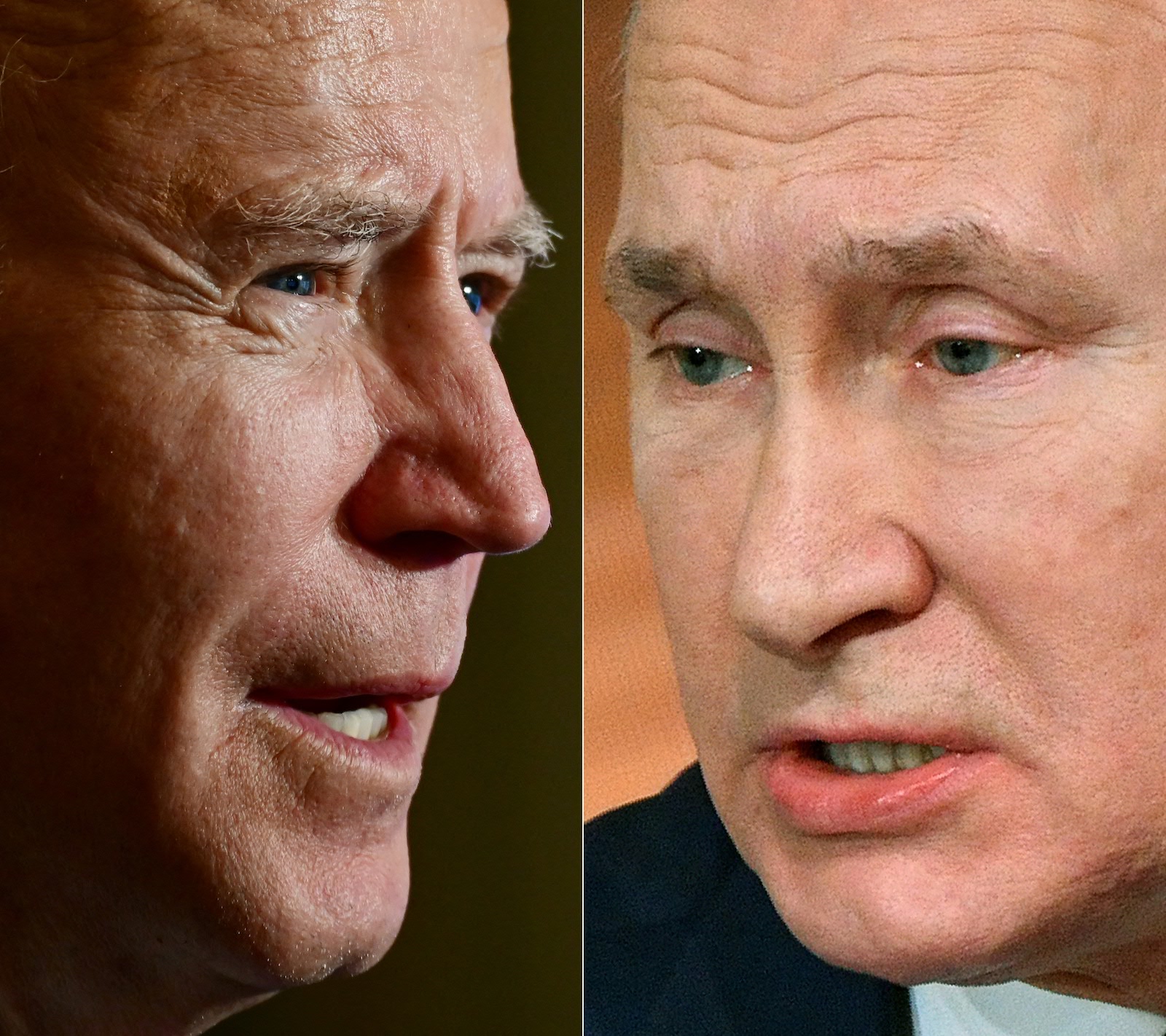
 asiatimes.com
asiatimes.com

